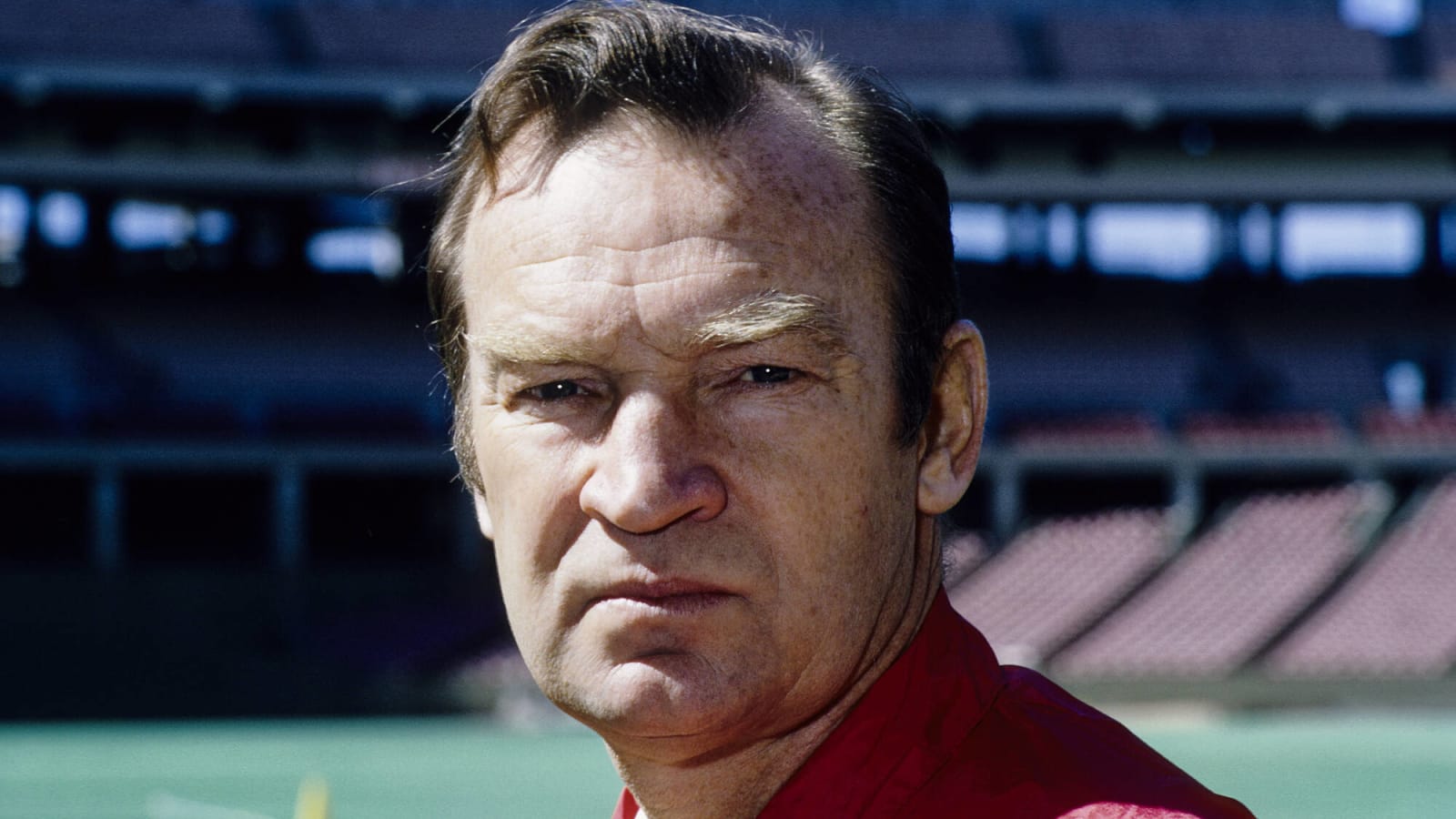
One of the most beautiful things about watching sports over the course of many years is watching the evolution of a game and how it is played.
Throughout its history, NFL football has gone from a sport that was defined by plays of “three yards and a cloud of dust” to a supercharged, pass-friendly game where most quarterbacks put up in excess of 4,000 passing yards a season.
One of the men most responsible for this metamorphosis is Don Coryell, who coached the then-San Diego Chargers from 1978 to 1986.
On Wednesday, it was announced that he had become a finalist for induction into the Pro Football Hall of Fame.
Former Cardinals’ and Chargers’ HC Don Coryell was announced this morning as the coach/contributor finalist for the Pro Football Hall of Fame Class of 2023.
— Adam Schefter (@AdamSchefter) August 24, 2022
If he actually gets inducted, he will finally get the full recognition he deserves for modernizing NFL offenses and helping to make the league what it has been during the modern era.
“Air Coryell” Took NFL Offenses Into The Stratosphere
In the 1970s, the NFL was a black-and-blue league that was defined by conservative play-calling and brutal defenses such as the Pittsburgh Steelers’ “Steel Curtain.”
It was not a very QB-friendly league back then.
On the other hand, the old American Football League in the 1960s was a more renegade, pass-friendly league that featured a more crowd-pleasing style of play.
One AFL team that got absorbed into the NFL during the merger in 1970 was the Chargers, which had won the league title in 1963 behind gun-slinging QB John Hadl and run-and-gun head coach Sid Gillman.
When Coryell took over as Chargers head coach during the 1978 season, he looked to build on what Gillman had started over a decade earlier.
He used up to five receivers on each play, often putting them into motion prior to the snap to make them harder to defend, and having at least two of them strike downfield and stretch defenses vertically.
Coryell also loved to use tight ends prominently as receivers, instead of only as blockers, which was how they were predominantly used to that point, and it was a strategy that made tight end Kellen Winslow into a Hall of Famer.
"Without Don Coryell, @kellenwinslowsr is just another TE." #PFHOF19 pic.twitter.com/lVgR3sOE4y
— Pro Football Hall of Fame (@ProFootballHOF) January 4, 2019
This offensive scheme became known as “Air Coryell,” and in time, the rest of the league would come around and start adopting bits and pieces of it.
Coryell went 8-4 after taking over in San Diego in 1978, and with Dan Fouts maturing into a star QB, the Chargers matured into a contender.
They went 12-4 in 1979, finishing second not only in points scored but also points allowed, and the following year, they reached the AFC Championship Game, where they fell to the eventual Super Bowl champion Oakland Raiders.
Air Coryell 1980#Chargers #BoltUp pic.twitter.com/OvGQrXUm0v
— Old Time Football
(@Ol_TimeFootball) June 3, 2022
The 1981 Chargers finished 10-6 and won a doozy of a shootout in the divisional round versus the Miami Dolphins, a game that many consider the greatest ever played in playoff history.
Unfortunately, during his tenure, Coryell was a piece or two short of a true championship team, especially on defense, but it did nothing to dull his impact.
‘Air Coryell’ Is Everywhere In The Modern NFL
Coryell may have been somewhat forgotten by today’s fans, but his impact is ubiquitous in today’s game.
Dick Vermeil, the head coach of the 1999 St. Louis Rams, used a version of Coryell’s system, and it worked incredibly well, as it turned QB Kurt Warner and running back Marshall Faulk into legends after the team won the Super Bowl that year.
In the years since, the “Air Coryell” system, or at least some form or derivative of it, has become commonplace for many teams.
You can see it every time teams line up at least four wideouts in an offensive set, or when teams consistently go with just one running back or an empty backfield.
Unfortunately, Coryell passed away in 2010, but he is one of those innovators who will live on in spirit and influence forever.
More must-reads:
- Toughest, easiest four-game stretches in the NFC South in 2024
- Odell Beckham Jr. reveals why he was 'hesitant' to join Dolphins
- The 'Super Bowl starting QBs' quiz
Breaking News
Customize Your Newsletter
 +
+
Get the latest news and rumors, customized to your favorite sports and teams. Emailed daily. Always free!

